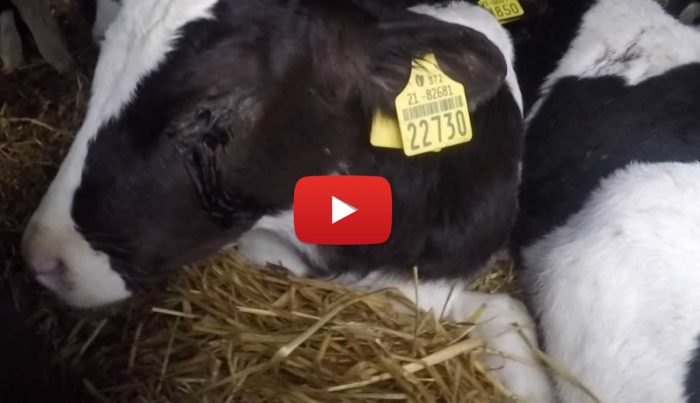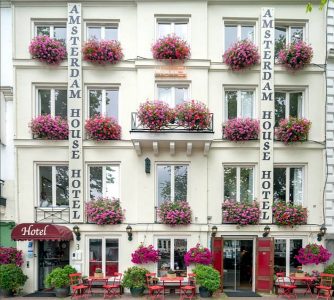Eyes on Animals is publishing today a new film they made, in cooperation with Animals International , Animal Welfare Foundation/Tierschutzbund Zuerich and Welfarm, about the fate of Dutch cattle exported out of the Netherlands. Teams documented this past summer how Dutch cattle (males born on dairy farms in Dwingeloo and Friesland) were tied up, forced to fall down and then had their necks sliced open, back and forth, with a knife, on a blood-covered floor of a slaughterhouse in Beirut. The teams also documented Dutch cattle being loaded onto a vessel at the port of Cartegene (Spain) heading to Libya for slaughter.
The Netherlands does not approve of its animals being exported for slaughter outside of the EU, however continue to export cattle to other EU countries where the animals are allowed to be sent out of the EU for slaughter. Slaughter conditions in Lebanon and Libya are known to be brutal. Cattle arriving from EU countries to Beirut port in such bad condition that they cannot walk anymore are never euthanized but instead hoisted live out of the vessel by one leg via a crane. In abattoirs animals are chased, jumped on, have their tendons slit and eyes poked in order to tackle them to the ground, chain them and then cut their throats while fully conscious and fully sensitive to pain.
Eyes on Animals is calling on the EU to put a stop to export for slaughter in countries where slaughter conditions are known to be forms of torture.
Eyes on Animals, Lesley Moffat: “The Dutch cattle export industry should instead be first exporting its knowledge in animal behaviour and welfare so that slaughter conditions can once and for all improve in these countries, rather than just continue to send our live animals there to be tortured. I have been observing these horrors since 2001 when I first went to Beirut, it is time for real change, and that change must come from industry itself. Until then, EU authorities must enforce its own rules, and no longer accept sending animals on long and painful journeys to slaughterhouses where they suffer so intensely”.


